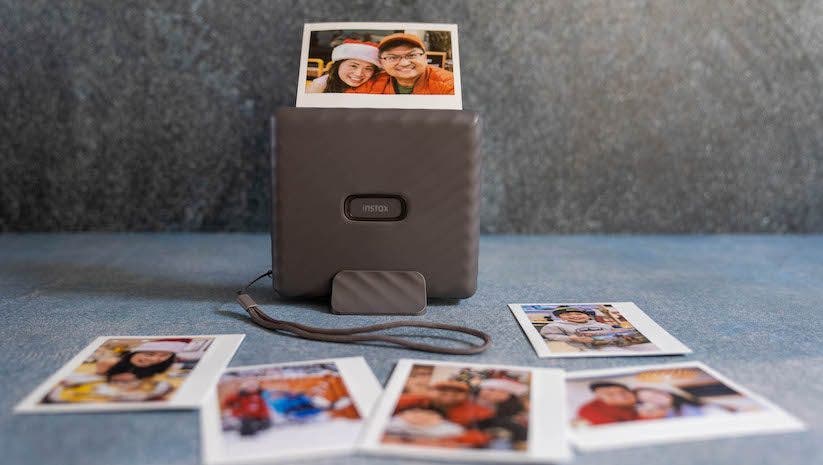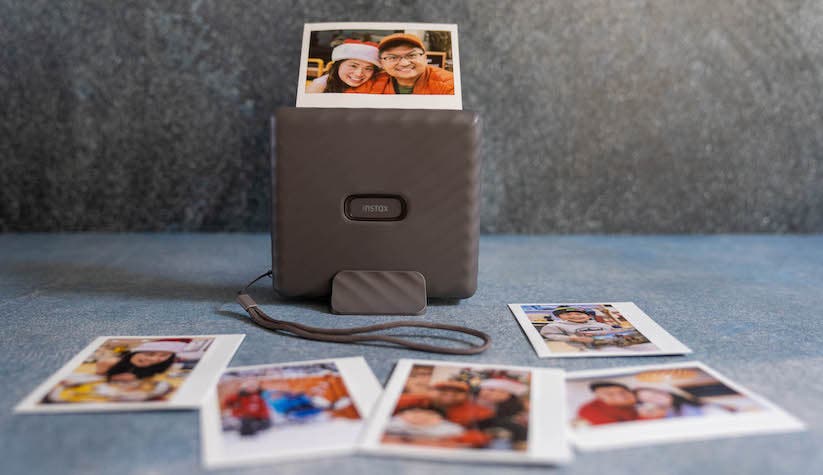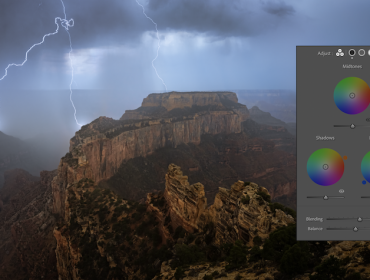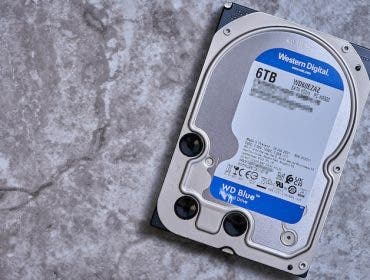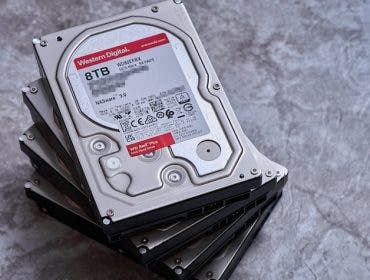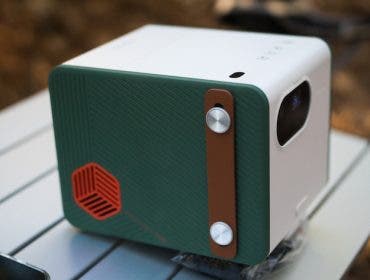Late last year, Fuji released their latest in the line of Instax printers. This time, they’ve gone wider than ever before. The Fuji Instax Link Wide Smartphone Printer is the size of a CD case (5.5 in. x 5 in x 1.3 in) and outputs prints that are 2.4 in. x 3.9 in. Over the past month, I’ve been able to put it through its paces and have come up. In this review, I’ll be concentrating on usability, print quality, and app features. But first, here are the key features of the printer:
Key Features of the Fuji Instax Link Wide Smartphone Printer:
- Connects wirelessly via Bluetooth to your smartphone
- Prints 2.44 x 3.89″ photos
- Requires downloading of free INSTAX LINK WIDE Smartphone App
- QR Print Mode to add URLs, sounds and messages
- Over 30 editable templates
- Multi-Print feature to print numerous copies
Usability
The printer setup is a breeze. You’ll first need to download the instax Link WIDE app from Apple or Google. There are several Instax apps available for the different printers, but you must use the Link Wide app for this printer. Then, simply follow the instructions to pair with your mobile device via Bluetooth.
The printer uses a rechargeable battery, and it took just under two hours to fully charge. For me, the printer typically prints about 40 prints (4 packs of 10 photos) before needing to be recharged.
Prints pop out of the printer between 5 and 10 seconds after hitting the print button on the app and takes around a minute and a half to develop completely and reach full saturation. The printer is supplied with a small plastic stand, a micro-USB charging cord, and a small lanyard.
It is available in two colors (ash white and mocha gray). I purchased the mocha gray version, which has a lovely matt finish. Inserting a cartridge of photos is intuitive and hassle-free thanks to the convenient yellow-colored tab which helps to align everything properly. Each cartridge contains ten prints and houses everything needed to make prints. As with other Instax printers, there are no additional items such as ink cartridges to fiddle with. As soon as a new cartridge is inserted, the printer spits out a rigid plastic cover and is ready to make prints.
Print Quality
Perhaps the most important setting to consider is the “Print Mode Options.” You can choose either the “Instax-Natural Mode” or the “Instax-Rich Mode”
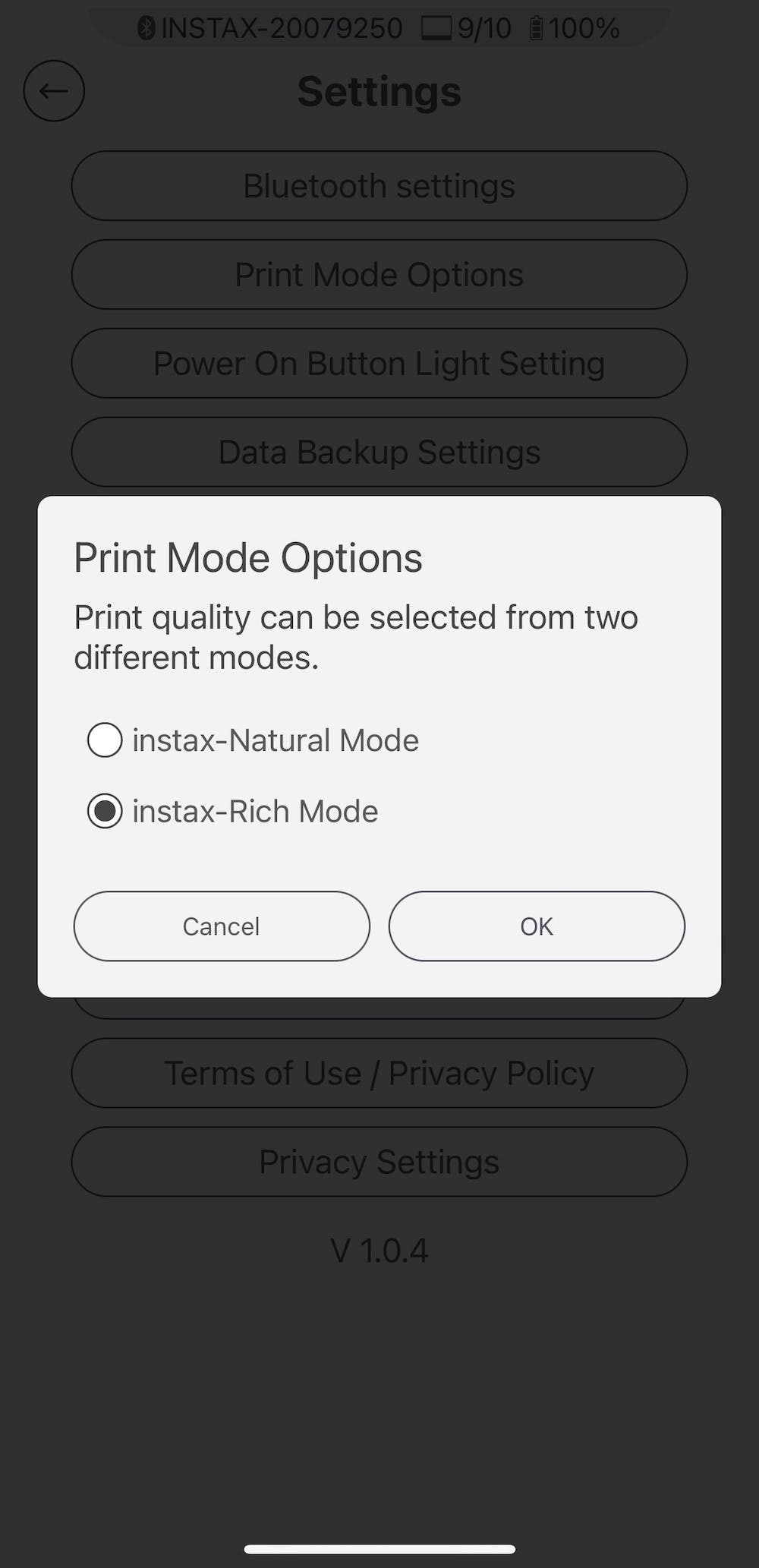
In the image provided, the samples on the left were printed in Rich Mode and those on the right in Natural Mode.
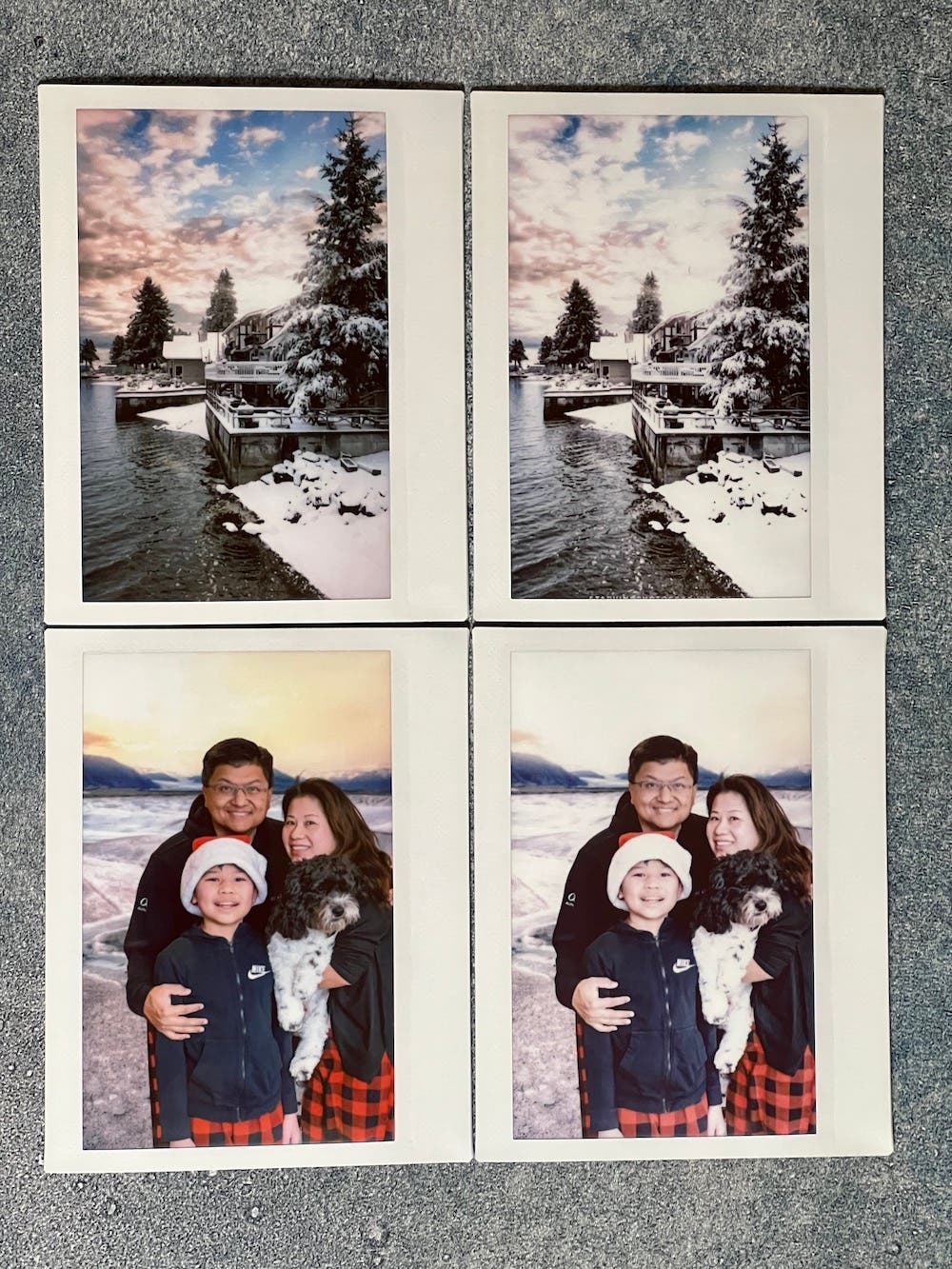
By far, my favorite is the Rich Mode. The colors are deeper, he highlights are not as washed out, and the shadow details are maintained. I printed a variety of subjects and, in each case, the Rich Mode just looked better. The Natural Mode has a more “vintage” feel with strong contrasts and a somewhat desaturated look.
The details in the prints are crisp and clear. Images taken on a mobile device and those downloaded from a larger-sensor camera both look excellent on Instax paper. Paper finish is glossy and relatively durable. I like the white border around the prints, which give them a classic look.
App Features
If you prefer to just print an image on your mobile device, you must touch “Simple Print.” You then choose an image from your photo library and press the purple print button. About ninety seconds later, you’ll see a fully developed photograph.
You can add text to the photos, and I especially like the ability to fine-tune the color with an eyedrop picker.
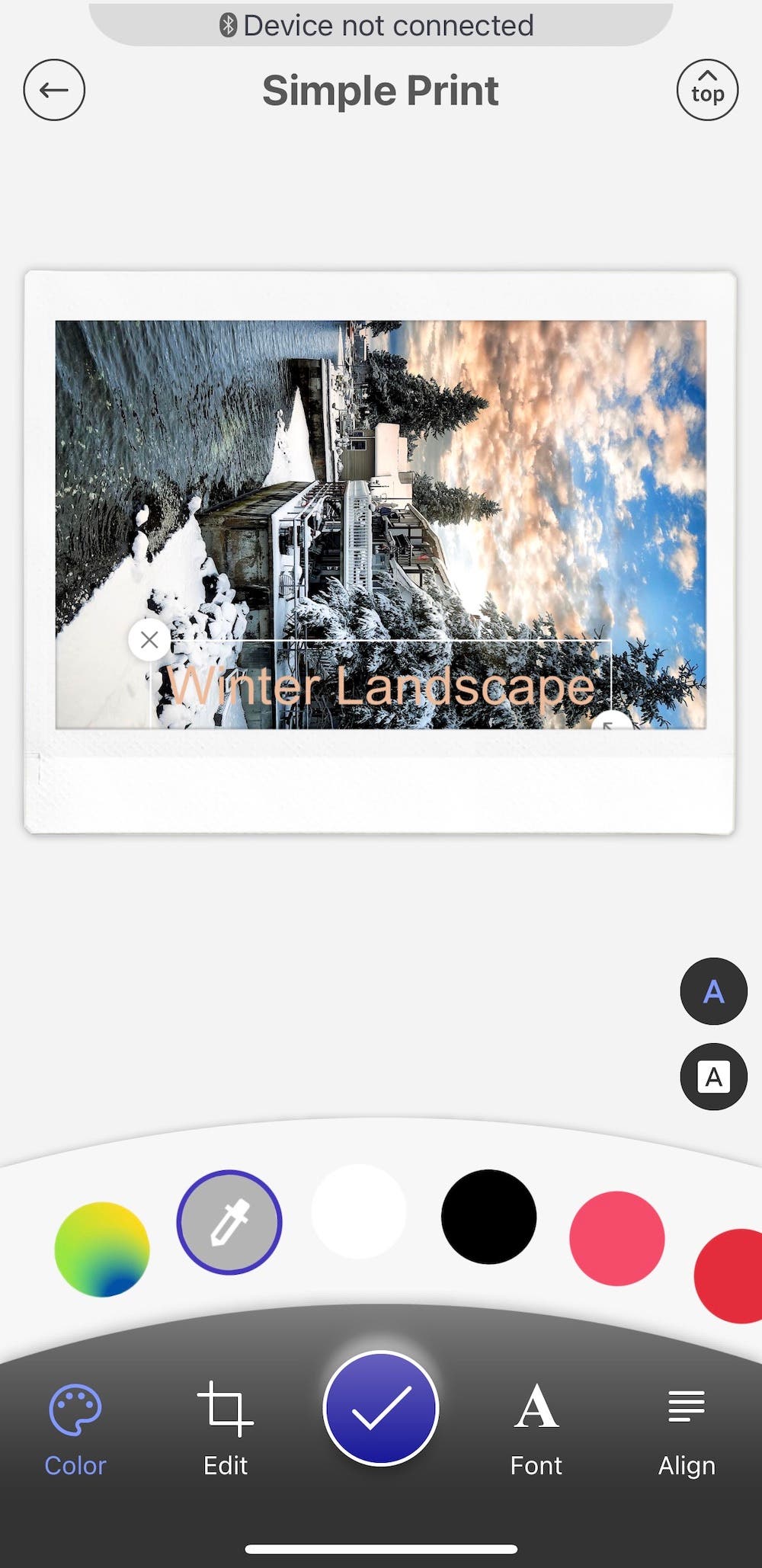
Some basic filters are also available. My personal favorite is the “monochrome” filter which produces nice, punchy prints.
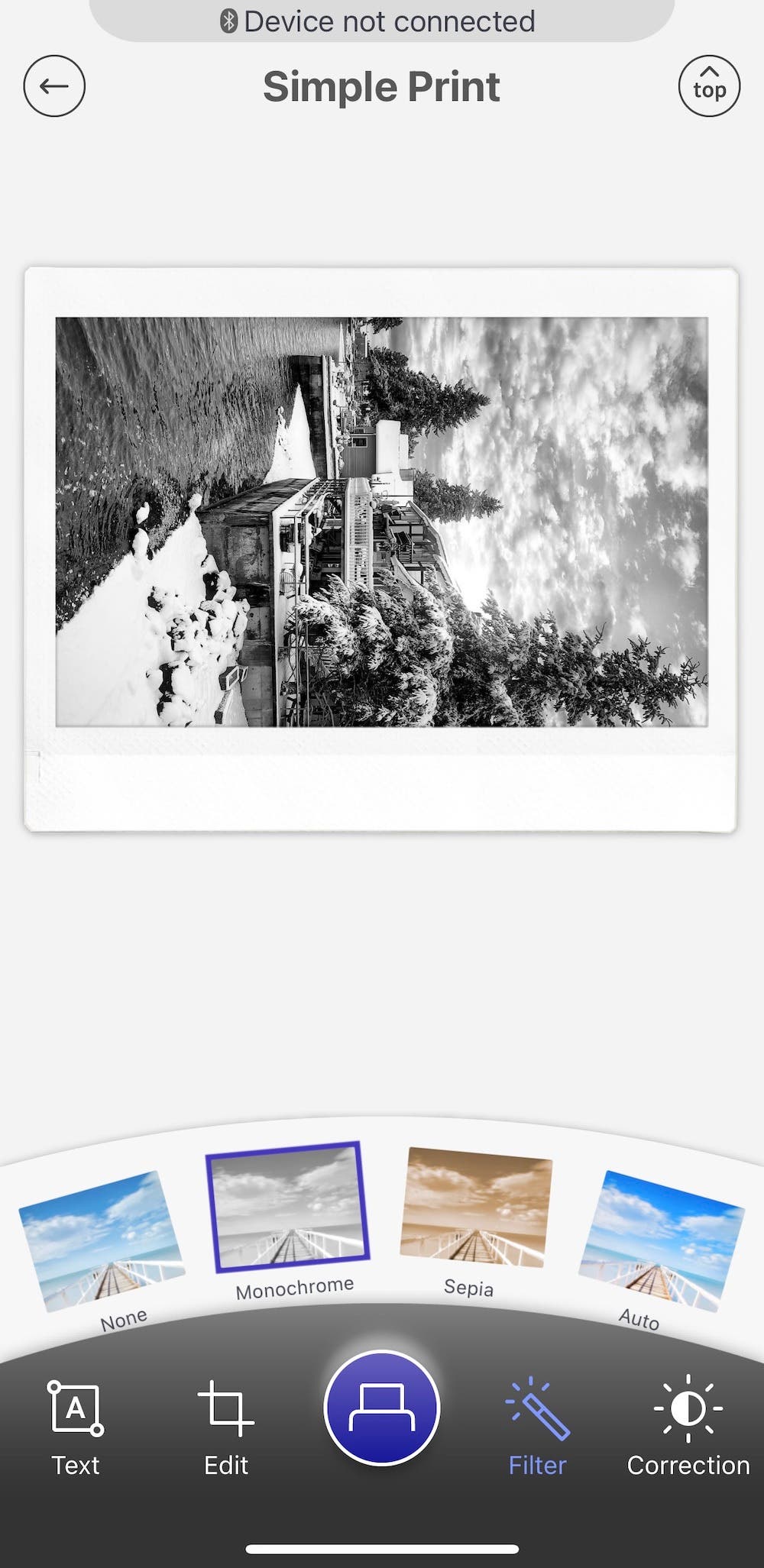
You’re also able to zoom and rotate your shot to modify the composition. Traditional corrections to brightness, contrast, and saturation can also be made.
One of the most fun features is the ability to add a QR code to the print.
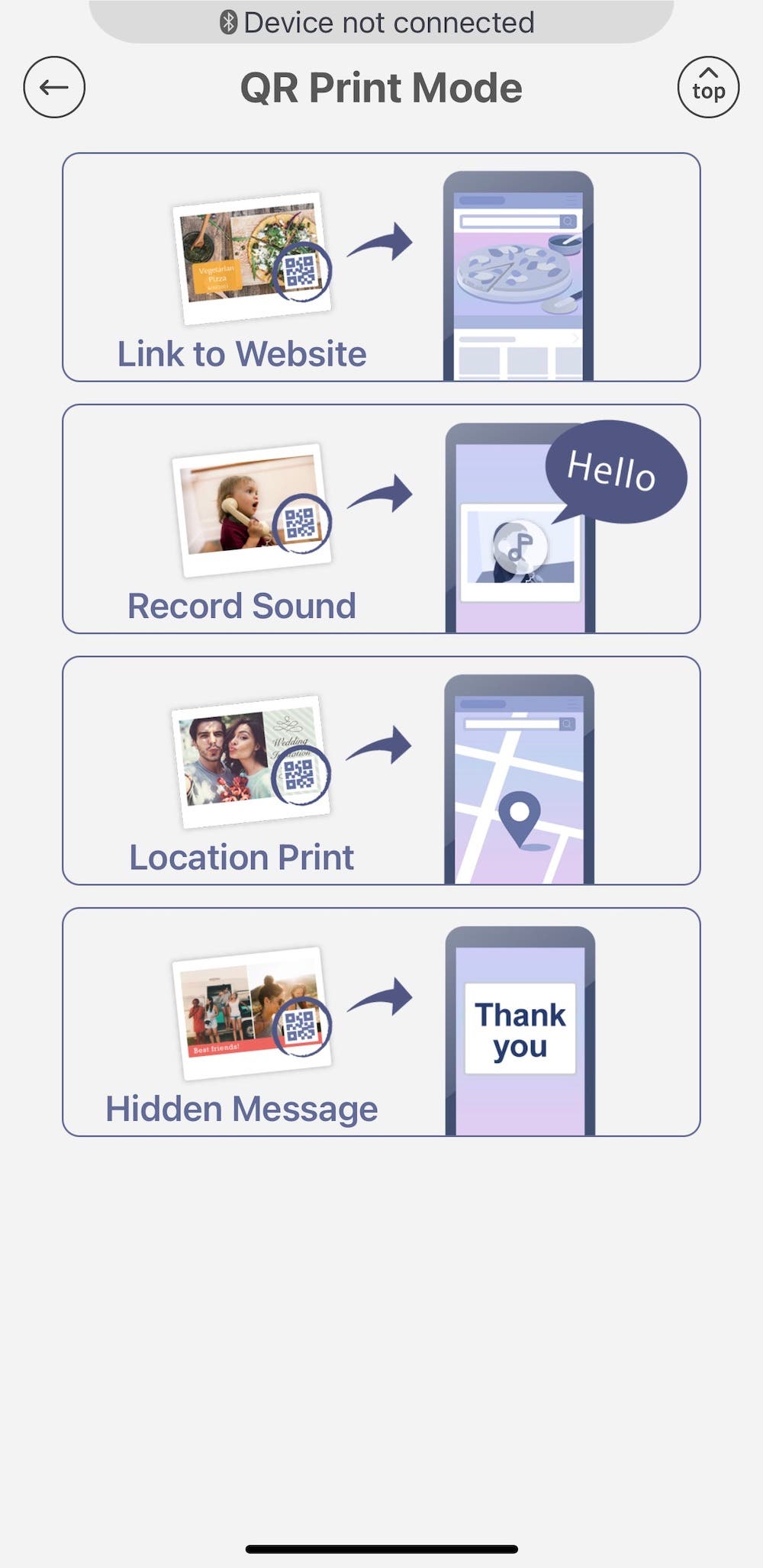
The code can direct the viewer to a website or a location on a map. You can also link to a recorded sound or a hidden message.
Please note: The recording is stored on Fuji’s website and maintained there for two years before being deleted. Finally, you can add a bit of whimsy with stickers and collages.
Room for Improvement
The Fuji Instax Link Wide Smartphone Printer charges via a micro-USB port. A USB-C port would have been more useful and practical.
Also, there is no indication on the printer as to how many prints are left in the cartridge. You’ll need to use the app for that. A counter on the printer would be very convenient.
Conclusion
The Fuji Instax Link Wide Smartphone Printer is Instax’s best printer yet. Print size is substantial and the print quality is top-notch. This is particularly true when using the Rich Mode. I frequently take it with me to family gatherings and photography workshops (where I make prints with a QR code linking to my website). Print media is durable with a classic feel. The app is also polished and intuitive. It offers some basic but essential editing tools while allowing you to apply a more personalized touch with collages, stickers, and QR codes.
